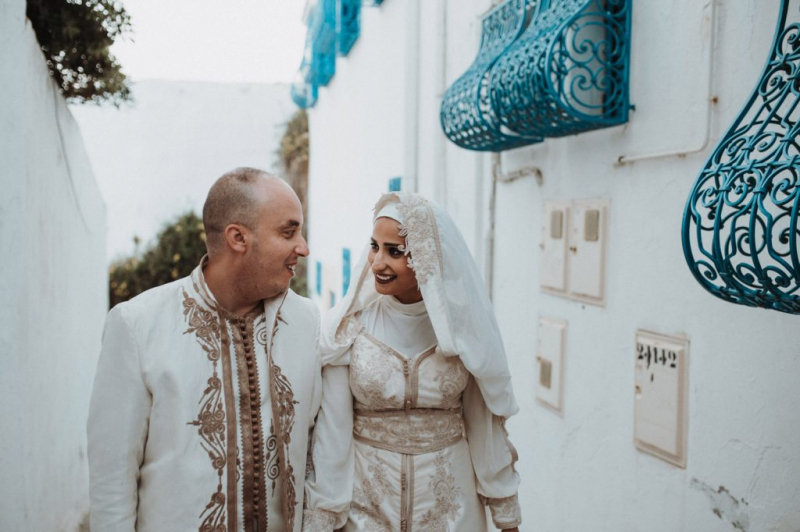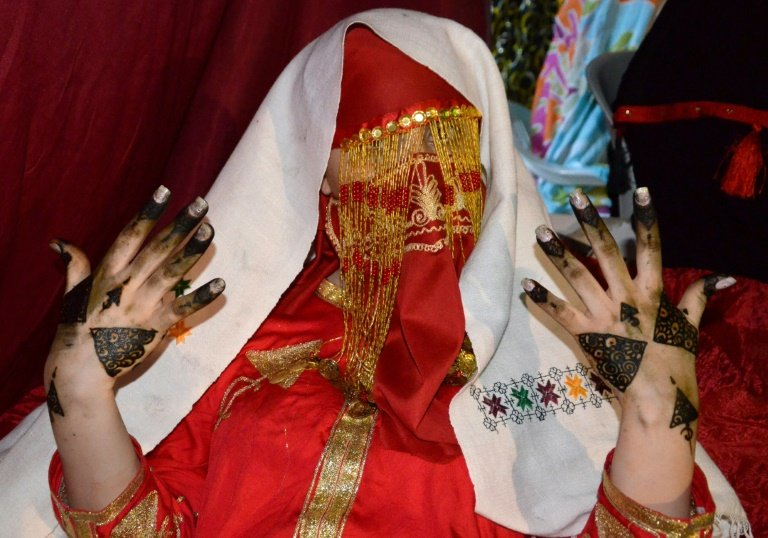Marriage
Marriage partners may be chosen through family arrangement or through individual selection based on acquaintances made at school or work. Cousins are preferred, in part because they are considered to be of equal status. Girls are not supposed to marry below their station. Mothers look for brides for their sons and may investigate potential candidates during their periods in public baths. When an engagement is reached, a complicated series of visits between the two families begins. Sometimes disagreements over gifts or etiquette cause the engagement to end, or one of the partners to back out. The bride is transferred from her home to her groom's home, while the groom waits outside to enter the bridal chamber where she is waiting. There is a period of seclusion following the consummation of the marriage until the young couple re-enters society.
The Personal Status Code, introduced by Bourguiba shortly after independence (1956), governs the legal aspects of marriage. In general, this code protected women's rights and encouraged companionate marriage. The code outlawed polygamous marriages and forced marriages for girls, mandated a minimum marriage age, and required judicial divorce rather than repudiation. Later amendments made it possible for women to initiate divorce









